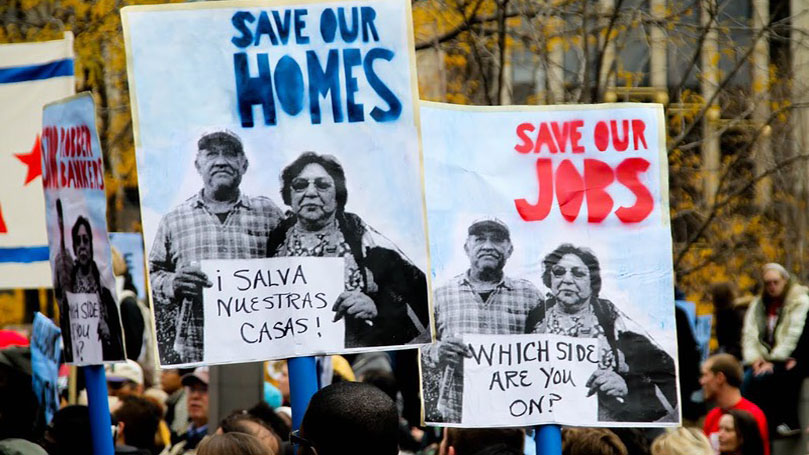
Several decades before Covid-19 and mass unemployment upended the economy, the nature of the global workforce changed dramatically.
The modern working class was formed when farmers and small shopkeepers were forced by economic changes into huge industrial enterprises; in rubbing shoulders with each other, they discovered they had common interests. The result was the formation of trade unions and working-class political parties.
What’s been happening in our lifetime is the opposite of those trends: technological change, driven by the desire to increase the rate of profit, has decimated existing economic structures and fundamentally changed the nature of employment.
The results are in: low union density, wage stagnation, “cost sharing” health care, 401k’s, part-time and temporary employment, gig workers, “at-will” employment, “independent contractors,” ad nauseum.
So how do we define unemployment if the traditional definition of employment (i.e., full-time work with benefits) has radically changed?
Certainly, it raises a larger question: how can unions reverse decades of lower density if the working class is more structurally isolated than ever before?
Organizing the Unemployed
In the 1930s, Party organizers hung out at unemployment offices, bread lines, factory gates, and cheap hotels to find recruits for the unemployed councils. In other words, they organized on a city-wide or regional basis. Any unemployed worker could join.
Today, despite their limitations, the trade unions are the only organizations that have the geographical scope and resources to organize the unemployed on a national basis.
I argue that there would be little distinction between organizing the unemployed and building new types of union structures if the essential difference between employment and unemployment is gradually disappearing. These organizations would be based on regional struggles, similar to an expanded associate member model, with minimal dues and limited benefits.
These structures already exist; Working America is one example. The problem is they don’t have any teeth. They’re largely canvassing or online portals with little worker-to-worker contact. They usually ask you to sign a petition or give money. You’re not invited to join an organization and talk to other workers.
The basis of modern unions is one shop, one local. Unions are organized along jurisdictional lines. Is this a sustainable model for the future?
I’ve personally participated in a dozen or so NLRB campaigns. It takes a minimum of six months to a year to organize a small 50-worker nursing home, and bargaining can drag on for months after that. This organizing model will guarantee that the percentage of organized workers will continue to decline.
Put another way, my grandchildren may never get the chance to join a union (or complain about initiation fees!) if they have to wait for an organizer to show up at their workplace.
As communists, we need to be up front about this: the main task of the present, at least after November, is to organize the unorganized.
How do we pay for this? As a former secretary-treasurer of my local, I know that union budgets are always stretched. When locals need money for a project, they did an assessment. We should call for a national assessment of $12 a member (a dollar a month for a year). This would raise millions for a national campaign to organize the unorganized.
The key principal again is the regional as opposed to occupational nature of the campaigns. The demands and structures will be defined as organizations begin to take shape.
Image: People’s World.


 Join Now
Join Now